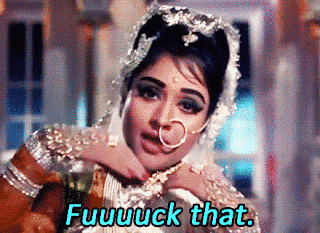I'd like to talk about what constitutes
kindness and bravery, and what any of it has to do with writing
romance. But there is so much, so many different threads, that I'm
not sure how to pull them together — especially without citing
hundreds of years of racial disparity, colonialism, colorism,
segregation, privilege, etc. It's a lot.
You can read some brilliant thoughts on
what's going on in Romancelandia right now — what HAS been going on
for decades — by Courtney
Milan, Melissa
Blue, and Zoraida
Córdova.
Now here are some of my thoughts.
•Someone asked me the other night,
“What difference does it make if someone is profiting of off us, as
long as the diversity message is spread? I thought spreading the
message was important.” This is a legitimate question, and I
understand why people are confused. Do we only want the “right”
people supporting diverse causes and inclusive books? And here's my
answer: It's not about the right people, it's about HOW the message
is spread. If someone couches reading a book by a black author as a
“have to,” is that really palatable? There's a reason many kids
hate broccoli and Brussels sprouts. Do you really want to pick up a
book if someone says you SHOULD read it because Diversity Is
Important? That's like forcing cod liver oil down someone's throat! And it's even worse if you're trying to say Diversity is Important and Trendy. People of color aren't kale. I don't care how artisanal and hip you pretend inclusive romance is, no one's drinking your kale smoothie.
Similarly, if you have a high-profile
reviewer creating a whole diversity awareness month and devoting
Kirkus Reviews blog posts to diverse romance...only to say “I'm
not actually reading these because they're not in audio/I don't have
time/there are so many other books,” is that going to make you want
to read a diverse title? If it sounds like these books are hard to
find, not selling well, and not worth the effort to click a button on
your Kindle, are you really going to bother? “Well, if this
reviewer can't even make time to read a Beverly Jenkins or Alyssa
Cole book, why should I?”
So,
ultimately, the reviewer profits from page-clicks and greater
visibility, but the books and authors DON'T.
•Kindness.
Niceness. Courage. Bravery. Ultimately, romance publishing is a
business — Rebekah Weatherspoon loves reminding people of
this and pointing out that we're all trying to make money,
so calls for “civility” are actually getting in the way of one's
livelihood. And she's right. Being “nice” is not a business
strategy. It's a way to keep the playing field comfortable and safe
as white, straight, cisgender women continue to dominate the market.
When we're told to try being “nice” to get our message across,
what we're really being told is to shut up, to not rock the boat.
Speaking
of boats, I love how Tessa Dare addresses the issue of niceness in
the romance community supposedly helping foster growth. “Does a
lukewarm bath of general niceness lift ALL boats, really? Or just
some boats?” she asks on Twitter. “What do we say to people
sitting--nicely--in boats that...gosh, just don't seem to be rising?
'Hmm, have you tried being even NICER?' No.”
That's why you'll see authors of color,
LGBTQ authors, authors who are a religious minority — and authors
who fall under all of those umbrellas, because, hello,
intersectionality — not being so damn NICE. We have to yell just to
be heard. We have to rattle the cage just to be acknowledged. But,
somehow, it's the women telling us to shut up who are lauded for
their courage, who are told they are brave. Women who, oftentimes,
have better publishing deals and shelf space than we can hope for.
Their tears matter more than our livelihood. That's what we're
constantly told. “You're broke? Well, I'm heartbroken
because you think I might be racist or clueless or not listening to
you.”
You
are not brave or
courageous when you
try to pretend racism doesn't exist. You're deliberately ignoring
your own privilege and the voices of people around you. And it's not
kind or nice
to close your eyes and pretend
it will all go away — or to blame women of color when you
started the fight. Throwing us under the bus, making us the “Mean
Girls,” is, again, a way to profit off diversity without having to
lift an actual finger to really help the cause.
Like I said, it's a lot. None of this
is new, and I'm practically hoarse from talking about it. Here are
some of my past posts about diversity issues in romance publishing:
RWA15 in NYC: A Tale of Two Conferences
On Writing Diverse Characters and
Moving Past Passive-Aggression:
Spilling Tea, Choking on Silence and
Perhaps Burning Bridges:




